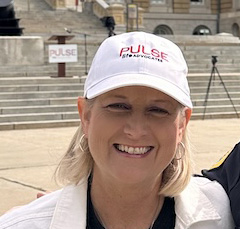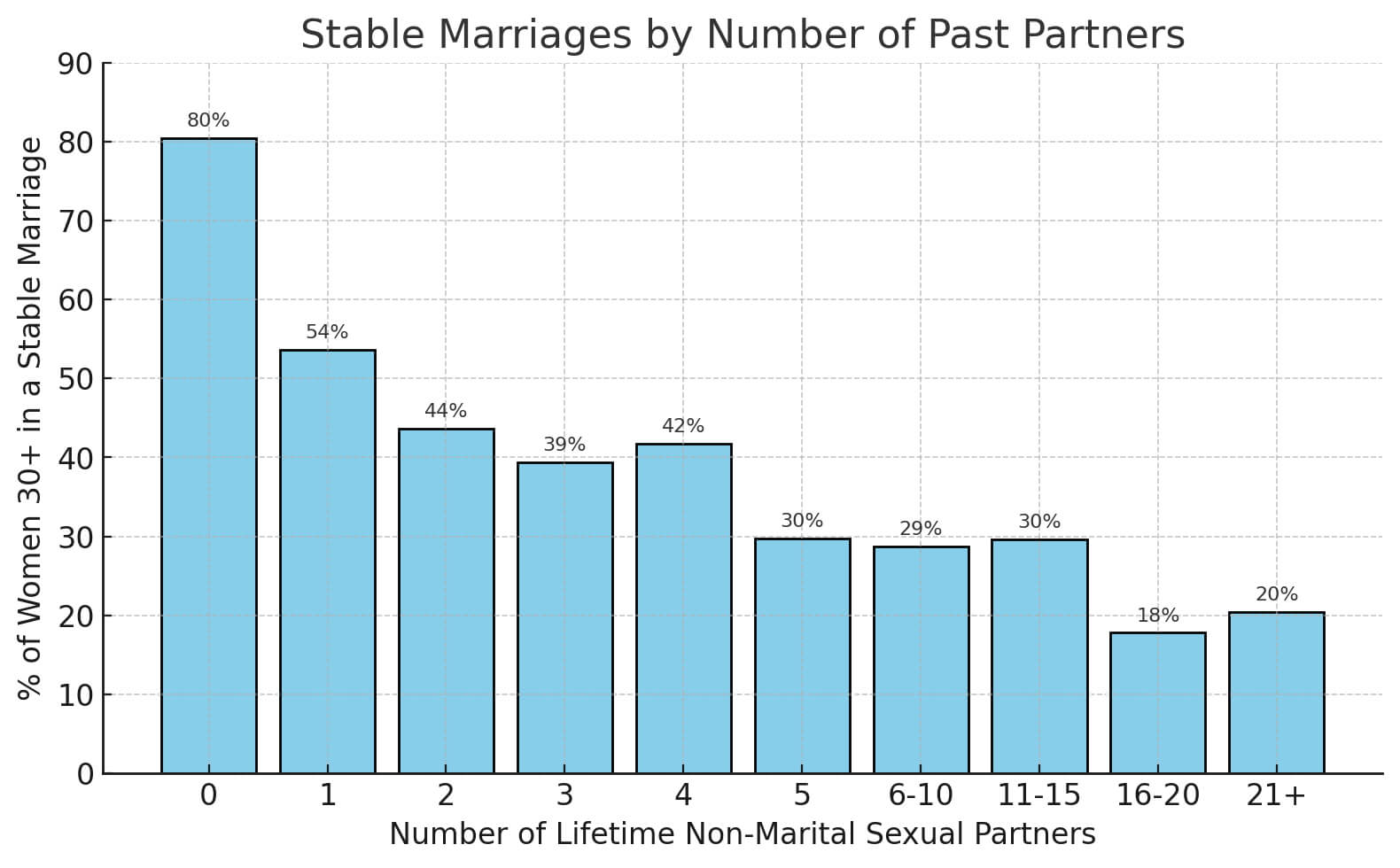Dear Pulse Life Advocates Supporter:
I want to see you at our upcoming Christmas Gala 2025 on November 22nd.
It’s not just because this is our biggest fundraiser of the year, and that without your financial support Pulse would be compelled to reduce our pro-life educational outreach.
It’s not just because I like you, since pro-lifers are the most likable people in the world. (A ballroom filled with pro-lifers is a blast!)
And it’s not just because we’re featuring the most dynamic pro-life speaker in the world, Kristan Hawkins, President of Students for Life!
I want to see you there for a simple reason: there’s power in unity.
Today’s legacy media slobbers over radical pro-abortion celebrities, politicians, and nut cases (pardon the redundancy), easily uniting them in their unholy cause.
But the pro-life movement gets no such adulation from mass media. We pray in small groups at Planned Parenthood. We meet with politicians at the State House in smallish groups and help form and expand grassroots outreach.
A Christmas Gala unites us in a single, joyous room. The pro-life movement thrives in this kind of inspirational environment.
Join us on November 22nd. Already got plans? Change them. The lives of our unborn brothers and sisters are literally on the line.
Make a difference and reserve your seat on our easy-to-navigate website. The $100 per seat price is a steal for all you receive:
- Great speaker, Kristan Hawkins.
- Great meal.
- World premier of our incredible America 250 film (five minutes of raw inspiration!)
- Beautiful new venue for Pulse, the Downtown Marriott on Grand.
- Fun live auction
- Christmas-oriented silent auction.
- A chance to win $500 in a game of ‘heads or tails’
- Live Christmas music during the cocktail hour by the legendary Saints & Sinners Band.
Unity is power.
Don’t wait. Join the fun. If you haven’t reserved your seat yet, do it right now.
I want to see you there!
Thank-you!
Maggie DeWitte, Executive Director
PULSE LIFE ADVOCATES.
P.S. If your busy life makes it utterly impossible for you to attend, do the pro-life cause a BIG favor right now: make a gift to Pulse Life Advocates. How? Check. Credit Card. Crypto. Venmo (@pulseforlife.org). Stock. Grain. In your will. Even via the Catholic Foundation of SW Iowa. No gift is too small … or large! Thank-you.
***
A hearty thank you to our sponsors…
LIFE CHAMPION SPONSORS
$10,000+
- Charlene & Don Lamberti
- Marilyn & Joe Lane
- Fred & Linda Nesbit
- Anonymous
- Sabina & Matt Kneifl – Edward Jones
- Dr. Lynn & Julie Nelson
LIFE ADVOCATE SPONSORS
$5,000+
- Dr. Steve & Sara Heddinger
- Dr. Mark & Mary Purtle
- Brad & Alison Duffy
LIFE DEFENDER SPONSORS
$2,500+
- CIT Signature Transportation
- Frank & Mary Jo Harty
LIFE PROTECTOR SPONSORS
$1000+
- Tom & Karen Quiner
- Tom & Amy Proctor
- Diocese of Des Moines
- Stephen & Peg Cashman
- Mike & Ann Touney
- InnerVisions HealthCare
- Terry & Jean Smith
- Lora Van Lent
- Deacon Jim & Mary Houston
- The FAMiLY Leader
- Stephen & Carie Kramer
- Doug & Marilyn Sharp
- KofC Jason Follett
- Holy Trinity Respect Life
- Terry & Joyce Lillis
- Pickerman’s Deli
- Financial Partners Group, Inc.
- Robert & Lumea Howard
- Ryan & Jessica Parlee
- Nick & Jessica Gerhart
- The Animal Health Clinic
- Construction Professionals
- David & Mary Dietrich
- Tom & Katrina Moreland
- Mary’s Helping Hands
- Nevin & Tami Cavanaugh
- Saints & Sinners Band
- Touney Life Care
- St. Edmond Catholic School
- Rep. Daniel & Staci Gehlbach
- Barnes & AJ Kelley
- Dave & Joanne Leto
- Jake & Erin Joseph
- Jeff & Karen Pierick
- Alan & Kasey Eoriatti
- Iowa Catholic Radio
- Caldwell Parrish Funeral Home
By Tom Quiner, Board President, Pulse Life Advocates
We’re down to the top 15 songs in our countdown of the 52 Greatest Love Songs Ever! This week’s entrant is Cole Porter’s 1934 classic, “I Get a Kick Out of You,” featured in his 1934 hit musical, “Anything Goes.”
Porter’s lyrics aren’t the usual fodder for a love song. The verse drips with melancholy:
“My story is much too sad to be told,
But practically everything leaves me totally cold.
The only exception I know is the case,
When I’m out on a quiet spree, fighting vainly the old ennui,
And I suddenly turn and see your fabulous face.”
And then the song turns on a dime. The tempo picks up, propelling the formerly pensive lyrics into an assessment on what’s really important in life, couched in terms the culture understands: “I get a kick out of you.”
In other words, YOU make me happy. YOU are the true source of my life’s joy. YOU thrill me, not temporal trifles.
Sinatra, as usual, is the man to make this song soar, backed by an exceptionally fine arrangement by Neal Hefti (above).
Cole Porter brings wit to his lyrics in ways contemporary lyricists seem incapable of. Sometimes he gets too witty, as exemplified in one of his original lyrics for this song:
“Some get a kick from cocaine,
I’m sure that if
I took even one sniff,
That would bore me terrif-
icilly, too.
Yet, I get a kick out of you.”
Hollywood slapped him down for this line (remember, this was 1934!) and Porter changed the line to read, “Some like the perfume from Spain.”
Much better.
Mel Tormé sings this song beautifully, but he leaves off the critical opening verse, so I’m not including his version.
Lady Gaga and Tony Bennett sing “I Get a Kick Out of You”
On the other hand, Lady Gaga and Tony Bennett give the song the full treatment (above). Well done, even though Bennett is somewhat diminished in this take. The great jazz interpreter was hampered by Alzheimers at this late stage of his storied career. Ms. Gaga carries the song with aplomb.
In two weeks, we will explore Porter’s greatest song with a timeless performance by Sinatra. In the meantime, we’ll be back next week with a song so incredibly good that it was a #1 hit it not once, not twice, but three times. I dare you to keep a dry eye.
Pulse Life Advocates promotes a culture of life through an amazing multi-pronged educational outreach. This series is one example. Love is the antidote to abortion. So spread the love. Subscribe to our blog and donate to the pro-life cause today.
By Tom Quiner, Board President, Pulse Life Advocates
“Crazy” was a wildly successful country love song made possible by the convergence of three country music superstars: Patsy Cline on vocals; Willy Nelson as songwriter; and Floyd Cramer on piano.
A young Willie Nelson composed the song in 1958. Nashville artists kept passing on recording it, because it wasn’t an easy song to sing. In that era, they preferred three chord songs. “Crazy” uses sophisticated chord progressions and rhythms, and tests vocalists with its range. Nashville music producers didn’t think it would sell.
Country star, Patsy Cline, didn’t like the song upon first listen, but her husband persuaded her to record it. The great Floyd Kramer was hired to accompany on piano, and the rest is history.
Each of these artists collaborated on creating a love song for the ages. Kramer pioneered a piano technique knows as the ‘slip note,’ which you can hear instantly in the intro to the song.
A classic torch song
Patsy Cline’s throaty vocals convey the rich emotions of Nelson’s lyrics:
“Crazy,
I’m crazy for feeling so lonely,
I’m crazy,
Crazy for feeling so blue.
I knew,
You’d love me as long as you wanted,
And then someday
You’d leave me for somebody new.”
This is the best of the great torch songs you’ll find peppered throughout my list of the 52 Greatest Love Songs Ever, including:
Love isn’t always a bed of roses. The person you love doesn’t love you back. Or they leave the relationship, and with it, emotional carnage in its wake.
Willie Nelson poses a difficult question in this song:
Am I “crazy for lovin’ you?”
That’s a tough question. Love is worth risking your heart for, as long as it is tempered by realistic expectations and guided by God.
What seems like a simple country love song is actually a profound work of art that plunges the depths of the mystery of love. Well done Willie, Patsy, and Floyd!
I have a major treat for you next week: a swingin’ big band arrangement of a classic song performed by Sinatra at his best.
In the meantime, support our pro-life educational outreach with your gift today.
By Tom Quiner, Board President, Pulse Life Advocates
I introduce you to the greatest American songwriter in history: George Gershwin. He collaborated with his lyricist brother, the great Ira Gershwin, in creating a shockingly expansive library of classic love songs, in spite of his abbreviated life.
George Gershwin died in 1937 of an undiagnosed brain tumor at the age of thirty-eight. He left behind a legacy of delightful love songs that are sung to this very day, and that will be sung by every generation to come.
Here’s a quick list of some of the best:
A Foggy Day
But Not For Me
Embraceable You
For You, For Me, For Evermore
He Loves and She Loves
How Long Has This Been Going On?
I’ve Got a Crush on You
(I’ve Got) Beginner’s Luck
Love is Here to Stay
’S Wonderful
The Man I Love
They Can’t Take That Away From Me …
… which leads us to today’s entry, “Someone To Watch Over Me,” #17 in our countdown of the 52 Greatest Love Songs Ever.
The song touches on the same theme, safety, as an earlier song on this list, “All I Ask of You.”
Sanctuary
Love provides a safe haven from the vicissitudes of life. We all want “someone to watch over me”, whether it is our Father in Heaven or our lover. Where “All I Ask” explores the theme with power and passion, Ira Gershwin provides a more whimsical take on this idea with his superbly crafted lyrics:
“There’s a somebody I’m longin’ to see,
I hope that he turns out to be,
Someone who’ll watch over me.
I’m a little lamb who’s lost in the wood,
I know I could always be good,
To one who’ll watch over me.”
Note the use of interior rhymes as well as the more common exterior ones. As I’ve said in previous entries in this series, the likes of an Ira Gershwin, Cole Porter, or Irving Berlin were all impeccable craftsmen when it came to their lyrics.
They polished their words until everything fit tightly together like a Swiss timepiece
Sloppy lyrics define today’s songs
By contrast, modern lyricists are sloppy. Take the biggest songwriter of her generation, Taylor Swift. She wrote a very good love song in 2008, “You Belong With Me.” But the lyrics aren’t tight. An example:
“But she wears short skirts, I wear T-shirts,
She’s Cheer Captain, and I’m on the bleachers,
Dreaming about the day when you wake up and find,
That what you’re looking for has been here the whole time.”
’T-shirts’ and ‘bleachers’ is a weak rhyme, as is ‘find’ and ‘time.’
Ed Sheerin, Olivia Rodrigo, and other songwriting contemporaries of Swift do the same. Their rhymes aren’t precise and consistent. Their fans don’t care.
Right or wrong, I’m a purist and love the virtuosity displayed by the old school lyricists.
“Someone To Watch Over Me” delights with George’s flowing melody and a tightly constructed lyric the explores the yearning in our hearts for a loving relationship that offers us sanctuary. The song was the centerpiece of the Gershwin’s Broadway musical, “Oh, Kay!”
Interestingly, George wrote the song to be performed in a bouncy, uptempo rhythm as you can hear in the 1926 recording (below) featuring Gershwin on piano.
Gershwin plays “Someone to Watch Over Me.”
But no one does it that way anymore, because it makes such a lovely, flowing ballad.
I prefer hearing the song sung by a female vocalist, because it preserves the original verse written for the English chanteuse, Gertrude Lawrence, who introduced the song in the original production. The verse goes like this:
“Although he may not be
the man some girls think of as handsome,
To my heart, he carries the key.”
I love the “man some” and “handsome” rhymes!
Willie Nelson recorded a much-loved cover of the song on his “Stardust” album in 1978. But he left off the great verse that sets up the rest of the song.
Willie Nelson sings “Someone To Watch Over Me”
Linda Ronstadt recorded my favorite cover of the song on her 1983 studio album, “What’s New,” with another masterful arrangement by Nelson Riddle (top of page). As I compiled this list, my first draft included two additional Gershwin songs, “I’ve Got a Crush on You,” and “Embraceable You.” I ended up dropping them simply because I was afraid my list was too ‘Gershwin’ top-heavy.
Here’s the thing about George Gershwin: he wrote incredible melodies. He was one of the all-time great melodists, topped by maybe Mozart, Schubert, and Tchaikovsky (the best). His rhythms were creative, forged in the dynamic roaring twenties when American music began to find its voice.
Just listen to Gershwin’s 1924 composition, Rhapsody in Blue. If you don’t know it, the piece blends jazz with classical music idioms. It forges 5 spectacular musical themes together into a brash melange of American musical exuberance. I came out of my seat the first time I heard it (and I was sitting alone in a room)!
The death of George Gershwin
George Gershwin’s death shocked the nation. The writer, John O’Hara, wrote upon hearing the news:
“George Gershwin died on July 11, 1937, but I don’t have to believe it if I don’t want to.”
Nor do we, because Gershwin lives on through his beautiful music.
Leonard Bernstein idolized Gershwin. He wrote:
”The Sunday morning [July 11, 1937] when I heard on the radio that George Gershwin had died, I was absolutely devastated. I tried to get out of playing [at summer camp, where I was swimming and music counselor].
I came into the dining room where all the parents were sitting, flattering and chattering, and instead of playing “Tea for Two” … I held up my hand, or played a chord, or something to get them quiet. Then I announced that Gershwin had died, that he had been an idol of mine, and that I was going to play his second Prelude as a memorial. They all put down their silverware and listened as I played this very slow, very sad music. As the last notes wafted away, I rose from the piano and left the hall in silence.
That was the first inkling I ever had of the power of music, of its possibilities for control. It was a great turning point for me. Perhaps the most theatrical thing in the world is a roomful of hushed people, and the more people there are who are silent, the more dramatic it is.”
Take a listen:
Leonard Bernstein plays Gershwin’s 2nd Prelude
Gershwin songs fill me with life. Their love songs are here to stay, to play off of one of their song titles. Another one of their song titles is, “Love is Sweeping the Country.” I think of that title every time I hear about a baby being born to a family or friend. Each child is made in God’s image. And God IS Love.
The more babies, the more love sweeping the country.
Now do you understand why Pulse Life Advocates devotes time promoting love songs? Babies are not just lovable. They are infused with the spark of God’s Divine Love. A simple love song is such a simple way to let people get back in touch with their own humanity that God gave them even before they were “knitted in their mother’s womb.
Thanks to George and Ira Gershwin, a whole lotta love is still sweeping the country through the power of a song.
Next week shifts back to Country music for a love song everybody loves. See you then!
[Keep the love coming with your gift to Pulse Life Advocates!]
Lot’s happening this month! Life Chain last Sunday. Our quarterly pro-life meeting last night. 40 Days for Life. And just Sunday, our kick-off celebration of America 250.
America 250 is an ongoing commemoration of the signing of the Declaration of Independence which comes to a head on July 4th, 2026, the 250th anniversary of the Declaration’s signing.
Pulse Life Advocates kicked off the celebration with a gathering at the Iowa Capitol yesterday with a great crowd in attendance.
Pulse executive director, Maggie DeWitte, delivered a barn burner of a speech which links the values expressed in the Declaration of Independence to the pro-life cause.
We filmed it and will screen a polished, edited version at our Christmas Gala on November 22nd at the Downtown Marriott Hotel. Be sure to reserve your seat today. Our keynote speaker is the great Kristan Hawkins, president of Students For Life.
Here’s an excerpt from Maggie’s speech:
“It’s fashionable these days for those of a certain political persuasion to bash their own country. These prodigal sons and daughters have yet to understand the rich lessons of the Declaration.
That all men, all women, born and unborn, are graced by God not only with a right to pursue their dreams, and not only with a right to be free. It’s more, so much more, than than that … because dreams and freedom are denied if your very Life has been sacrificed on the altar of abortion.
The Declaration leads us inevitably to the most shocking political revelation in history: That YOUR life matters because you enjoy unearned God-given rights. And these rights begin immediately, the second you enter this world … at your conception.
Abortion is a direct assault on what made … and what makes America great.”
Makenna Six from Turning Point USA and Chuck Hurley from the Family Leader also spoke, focusing on the primacy of God and faith in living out the Life-affirming message of the Declaration.
Coming Up:
Join us for 40 Days For Life in praying for our unborn brothers and sisters at Planned Parenthood, 2304 University, Des Moines, IA on these dates:
- Wednesday October 15th from 10:30-11:30AM
- Thursday October 23rd from 12:00-1:00PM
- Friday October 24th from 2:00-3:00PM
- Monday October 27th from 11:00-12:00PM
- Thursday October 30th from 2:00-3:00PM
And be sure to reserve your seat at our Christmas Gala:
Saturday, November 22nd, 2025, 5:30PM at the Downtown Marriott Hotel, Des Moines, IA.
Country music’s all-time #1 song is a counter-cultural oddity to 21st century’s young listeners. “Stand by Your Man” is an anthem to forgiveness. Without it, relationships don’t have a chance.
Feminists railed against this lyrical powerhouse-of-a-song which was first performed by Tammy Wynette and co-written by Wynette with Billy Sherrill.
The exasperated Wynette once remarked:
“It’s unbelievable to me that a song that took me 20 minutes to write, I’ve spent 20 or 30 years defending.”
Feminists like Gloria Steinem pushed back by popularizing a slogan that:
“A woman needs a man like a fish needs a bicycle.”
This is one of the classic song refrains ever. You hear it once and it sticks with you forever. The lyrics are timeless:
Give him two arms to cling to,
And something warm to come to,
When nights are cold and lonely.”
A triumphant anthem
The melody has the feel of a triumphant anthem that so infuriated the fledgling women’s lib movement that coincided with this 1968 hit song. The refrain is so good that Wynette sings it three times in a row. I’m not sure I’ve heard that done before.
Newsweek characterized it as a song …
“… for the beleaguered housewife who grits her teeth as destiny dumps its slop on her head.”
Just two years after Wynette recorded the song, ‘no-fault’ divorce swept the country, and Iowa became the second state to adopt this awful law in 1970.
Why awful? Because it made it easy to break the marital bond. Marriages always have some bumps in the road.
Many marriages were lost because couples took the easy way out thanks to no-fault divorce, when some of these relationships could have been saved with counseling and hard work.
The power of marital vows
“Stand By Your Man” honors the power of the marital vow to be true in good times and in bad, you know, to stand by your man … or woman. It works both ways.
As is often the case, artists create a work of art which presents an ideal they can’t live up to themselves. Ms. Wynette married five times in all. According to the CDC, the average American woman has 4.3 sex partners in a lifetime compared to 6.3 for men.
How sad. Couples that save sexual intimacy for marriage fare better than couples that don’t. Promiscuity denies the virtue of the faithfulness Wynette promotes in “Stand By Your Man.”
Data supports the virtues of chastity and faithfulness. The Journal of Family Issues released a 2018 study that revealed “people who had sex with anyone besides their eventual spouse were 151% more likely to divorce than people who married as virgins.”
As the chart below shows, married women over the age of thirty who preserved the sex act for a single man, their husband, had marriages that were nearly twice as stable as women who had four non-marital sex partners.
“Stand By Your Man” acknowledges that “sometimes it’s hard to be a woman, giving all your love to just one man,” and it’s no different with men.
But it also affirms the need for forgiveness in relationships. It’s not a call for a woman to be a doormat, as Hillary Clinton infamously implied in a 1992 “60 Minutes” interview in the wake of her husband’s dalliance with Gennifer Flowers.
Ms. Clinton averred that she wasn’t “some little woman standing by her man like Tammy Wynette.”
Watching the interview in her bedroom, Wynette was livid with Clinton:
“I came up out of the bed. I said, `It didn’t make me so mad about the song right then, it made me mad ’cause she said “some little old woman.’ `The women I knew–my mother, my grandmother, my aunts–they stood by their man. Nowhere does it say be a doormat and let this man walk on you.’”
I’ve led with Wynette’s iconic presentation of the song. Take a listen (top of page).
Carla Bruni sings “Stand By Your Man”
I’ve also included a cover of the song by former first lady of France, Carla Bruni, whose husband, Nicolas Sarkozy, served as president of France from 2007 to 2012. Mr. Sarkozy was just found guilty of criminal conspiracy and sentenced to 5 years in jail. Ms. Bruni will be sorely tested to ‘stand by her man.’
And just for fun, watch the Blues Brothers sing it!
I’m counting down the 52 Greatest Love Songs Ever, because love is the antidote for abortion. Next week presents a beautiful love song by my favorite songwriter ever, who is the greatest American songwriter. Ever. (In my humble opinion.) See you then!
[Are you enjoying this series? Support Pulse’s pro-life educational outreach with your gift.]
Pope Leo XIV created a stir last week. He reacted to pushback directed at Chicago Cardinal Blase Cupich’s decision to lavish honor upon retiring pro-abortion Senator Dick Durbin.
Durbin ran as a pro-life Senatorial candidate before veering radically leftward, embracing unregulated abortion throughout all 9 months of pregnancy. He even blocked efforts to protect babies who survived their abortions and were born alive.
Pope Leo weighed in:
“I think that it is very important to look at the overall work that a senator has done during … 40 years of service in the United States Senate. I understand the difficulty and the tensions, but I think, as I myself have spoken to in the past, it is important to look at many issues that are related to what is the teaching of the Church.
“Someone who says I’m against abortion but says I’m in favor of the death penalty is not really pro-life.”
Kristan Hawkins reacts
Students For Life President, Kristan Hawkins who will keynote our November 22nd Christmas Gala, weighed in:
“Let me simplify this for our Holy Father. If you vote for allowing babies who are born alive in abortion facilities to die and vote over & over again in favor of more abortions or judges who will allow more abortions and babies to be killed … you deserve ZERO awards from a Catholic ministry.”
The reality is that the U.S. executes very few people. For the past decade fewer than 30 executions have taken place per year. For example, 24 were executed in 2024.
By contrast, the Guttmacher Institute estimates doctors aborted 1,048,700 babies in 2024.
Twenty-four vs. 1,048,700.
Over the past decade, 239 people were executed for capital offenses compared to roughly 10 million unique human beings who were aborted for the crime of being inconvenient.
This country aborts 239 babies every TWO HOURS on average … compared to 239 executions PER DECADE.
Twenty-three states, including Iowa, have laws protecting murderers from the death penalty.
By point of contrast, only twelve states fully protect unborn babies from the abortionist’s forceps, curettes, and poison pills.
The Catholic Church acknowledged the legitimacy of capital punishment for nearly 2000 years, until 2018 when Pope Francis definitively disallowed it. By contrast, abortion has always been disallowed by the Catholic Church.
In light of the night and day contrast between abortion and the death penalty, it’s understandable that reasonable men and women see a distinction between the two acts.
[Don’t miss Kristan Hawkins at our November 22nd Christmas Gala! Reserve you seat right now.]
By Tom Quiner, Board President, Pulse Life Advocates
Burt Bacharach was one of the most amazing songwriters of the 1960s. He was cut from a different mold than the other songwriting giants of the decade. He wasn’t a rock star. And he didn’t sport whiskers and long hair or wear tie-dyed T-shirts. Rather, he sported a tuxedo. He didn’t have a hair out of place. And his songs were hip and musically sophisticated.
His songs are so good that four of them made my list of the 52 Greatest Love Songs Ever, and they are all in my top twenty! Bacharach was at his best when teamed with the great lyricist, Hal David, who I think is under appreciated.
One more thing about this duo’s songs: They wrote for orchestras and bands with plenty of brass. In other words, unlike the Beatles, Neil Diamond, The Turtles, Paul McCartney and other artists on this list, the guitar (electric or acoustic) wasn’t the lead instrument.
As the culture changed and youth fell in love with the rock band, the Bacharach/David team prevailed through their sheer songwriting prowess. Which leads us to #19 on my list: “Close to You.”
The Carpenters made “Close To You” a hit
The Carpenters made it a massive hit, riding on the flawless vocals of Karen Carpenter and Richard Carpenter’s catchy arrangement. Bacharach usually did the arranging for his songs, but jumped at the chance for the Carpenters to record it, even if it meant relinquishing control of the arrangement.
The song was originally released in 1963 with a recording by Richard Chamberlain that was a dud. It took the Carpenters to fully realize the potential of the song.
Burt prevailed upon Richard Carpenter to keep the 5 note piano run, that became a signature feature of the song. Good call.
Hal David infuses a sweet romanticism in the very memorable first verse:
“Why do birds suddenly appear,
Every time you are near?
Just like me, they long to be
Close to you.”
In fact, most of his hit songs open with lyrics that instantly rivet the listener. Even more, they stick with you for a life time.
Take this quiz
Let’s see if you know the answers to the Hal David song lyric test below:
1. “Raindrops keep falling on my head,
And just like the guy whose feet are [fill in the blank.]
2. “The moment I wake up,
before I put on my make up,
I say [fill in the blank].”
3. “What the world needs now
Is love sweet love,
It’s the only thing [fill in the blank.]
4. “Do you know the way to a)Los Angeles? b)Sausalito? … or … c) San Jose?
5. “What’s it all about, a) Alexandria? b) Poindexter? … or … c) Alfie?]
6. “What’s new, a) elephant? b) orangutan? … or … c) Pussycat?
[The answer to questions 4, 5, and 6 is c.]
Karen Carpenter’s interpretation of “Close to You” captured the imagination of the world, making it the Carpenter’s first number one hit song, topping the Billboard Hot One Hundred chart for a solid month in 1970.
What a team: Burt Bacharach. Hal David. Karen Carpenter. Richard Carpenter. Their collaboration produced a masterpiece for the ages.
Why we’re publishing this series
In case you’ve forgotten, there is a purpose behind this series. Pulse Life Advocates believes that love is the antidote to abortion. Unions based on love produce more love. But unions based upon self-centeredness and sheer lust … don’t. Abortion is rare in the former, but sadly common in the latter. Love songs draw us closer to authentic love and simply make our lives a little more wonderful.
Here’s what you can do to help: take three minutes and 34 seconds to listen to “Close To You” from beginning to end. This little respite from you busy schedule will soften you heart and make you feel closer to someone you love. A nice way to change the world.
Wait ’til you hear next week’s classic Country love song, #18 on my list. Whew, it’s a doozy! See you then.
[Support our pro-life educational outreach with your gift today. We now take Crypto!]
By Tom Quiner, Board President, Pulse Life Advocates
Romantic love is simply intoxicating. It can make you feel dizzy, giddy, and even silly. The songwriting team of J. Fred Coots and Haven Gillespie captured this vibe in their 1938 love song, “You Go To My Head.”
I love Gillespie’s lyrics in the third verse:
“You go to my head,
With a smile that makes my temperature rise,
Like a summer with a thousand Julys,
You intoxicate my soul with your eyes.”
Most of us relished the idea of an endless summer when were were kids, or as the lyricist puts it, “like a summer with a thousand Julys.” Pure poetry!
This is a song I savor in July sitting on my patio nursing an endless gin and tonic.
The great music commentator, Ted Gioia, had this to say about “You Go To My Head:””
‘You Go to my Head’ is an intricately constructed affair with plenty of harmonic movement. The song starts in a major key, but from the second bar onward, Mr. Coots seems intent on creating a feverish dream quality tending more to the minor mode. The release builds on the drama, and the final restatement holds some surprises as well. The piece would be noteworthy even if it lacked such an exquisite coda, but those last eight bars convey a sense of resigned closure to the song that fittingly matches the resolution of the lyrics.”
Ultimately, the song takes you on a romantic journey in the hands of a good singer. So many greats have sung it, that it’s hard to pick a favorite version.
I’m giving top billing to Linda Ronstadt because she kind of put the song back on the map with her recording in 1986 with a wonderful arrangement by the great Nelson Riddle (one of Sinatra’s best arrangers).
But you can never go wrong with Diana Krall or Louis Armstrong (who leads with trumpet before the singing begins).
Diana Krall sings “You Go To My Head”
Louis Armstrong sings “You Go To My Head”
Love is the antidote to abortion.
I’m writing this post just a few days after Charlie Kirk’s assassination. I grew up in the 60s, a decade notable for three assassinations. The anger I sense today dwarfs what I saw in the 60s. I don’t remember people cheering the deaths of John Kennedy, Martin Luther King, or Bobby Kennedy on the mass scale we see today.
But within the past two years, we’ve seen people cheering Hamas’ butchering Israeli women and children; an insurance executive and family man who was gunned down; and now a young husband and dad who promoted dialogue to resolve conflict.
We need to slow down and soak in some love. Take some time and go back and listen to some of the previous love songs we’ve already highlighted in this series of the “52 Greatest Love Songs Ever.”
If you haven’t done so already, be sure to subscribe to this blog, because the music keeps getting better!
One last thing, and this is important: take a minute and support Pulse Life Advocates with your gift. Like Charlie Kirk, we promote a culture of life here in Iowa, and it takes money. Every dollar matters.

















